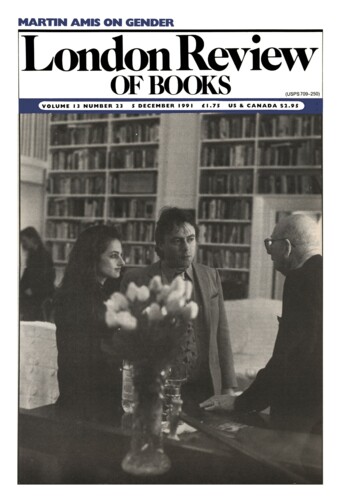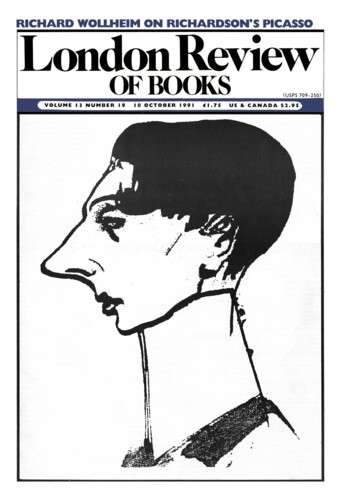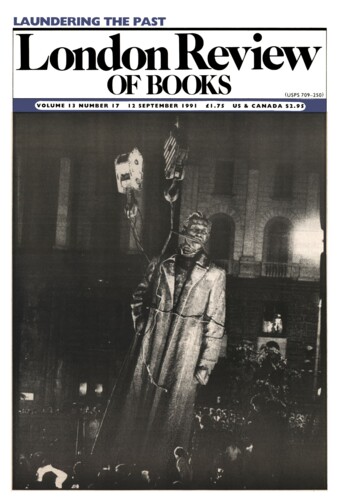Advice for the New Nineties
Julian Symons, 12 March 1992
Every poetic rebellion hardens sooner or later into an ossification of style and language and needs replacement by something at the time believed to be its opposite. In the 20th century it has been sooner rather than later, so that in Britain the almost art-for-art’s-sake purity of Imagism was replaced by the socially-conscious, deliberately objective poetry of the Thirties. When that was killed off by the war the vacuum was filled by the extravagant romanticism associated with Dylan Thomas, George Barker and Edith Sitwell. Less than a decade later, with those roses seen as over-blown, Robert Conquest was deploring ‘the omission of the necessary intellectual component from poetry’, gathering several disparate writers under one umbrella, and announcing the striking out of New Lines. The Movement was succeeded by the Group (now what was that?), and common sense gave way to the desperate metaphorical and mechanical ingenuity of the Martians, which in turn …




